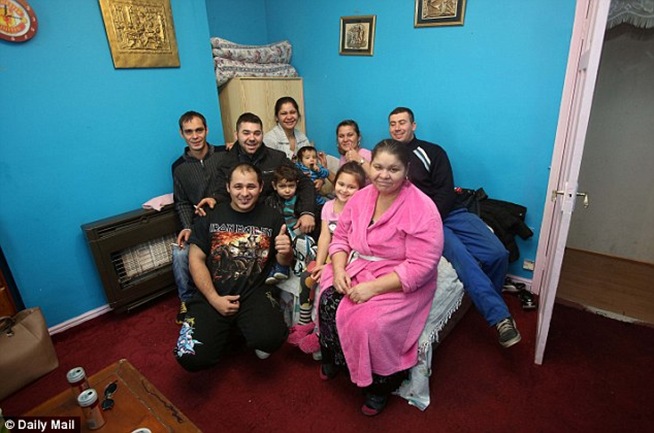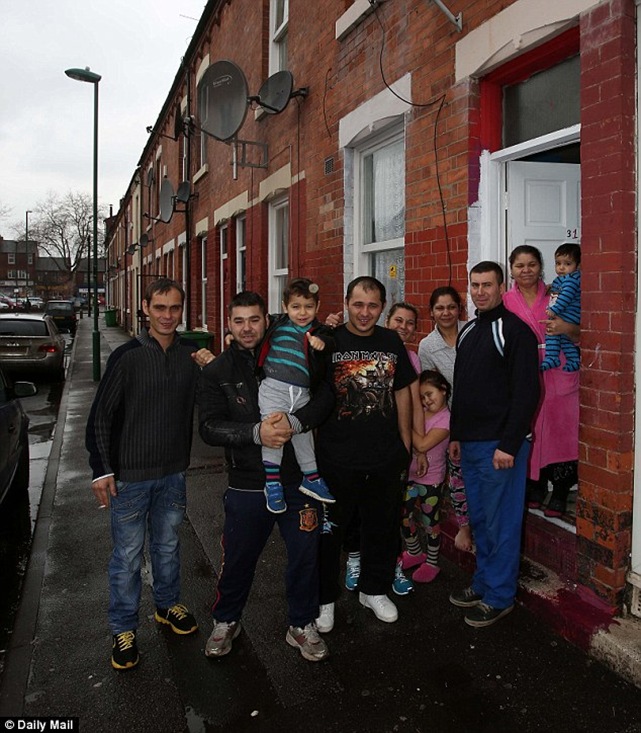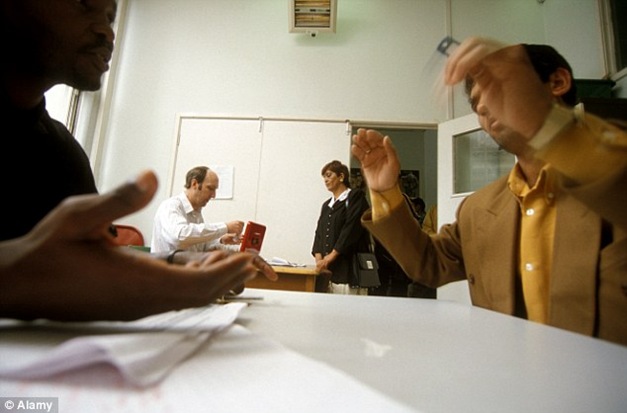Daily Mail
February 16, 2014

Rudi Ion struggles to count up the children from his huge Romanian clan who now call Britain home. It could be 100, he tells me.
‘I’ve got 25 cousins all living around Nottingham, each with three or four kids,’ he adds with a loud laugh.
Rudi is speaking from his rented three-bedroom terrace house in Bridlington Street, a shabby part of the Midlands city where he’s settled with his wife Anda and their two sons, nine-year-old Ionut and Constantin, six.
His mother Elena, 53, and sister Ana, who is 32, live there, too.
Rudi is an ebullient 28-year-old who speaks English well. He doesn’t seem surprised when I tell him that a recent controversial report from the Office for National Statistics (ONS) shows that more than 25 per cent of children born in England and Wales in 2011 were to foreign mothers — up 16 per cent on the decade before.
The highest number — 2.93 children per family on average — were the offspring of Romanians, and a spokesman for the ONS has suggested that Britain’s generous benefits system could encourage the migrants to have more children so they can claim extra money.
What is particularly striking, according to the ONS, is that Romanians who come to Britain are actually having more than twice as many children as they would at home, where the average is 1.25 children born to each family.

This week, the EU Commissioner for Employment, Social Affairs and Inclusion, Laszlo Andor, attacked the so-called xenophobia of British politicians over the issue of migrants coming to Britain and claiming welfare. He grandiosly announced: ‘Benefits tourism as such is a myth.’
Yet Rudi readily admits that our generous benefits’ culture does encourage Romanians to uproot to the UK, where they can claim state money for the children they bring with them.
‘Your benefits system is crazy — I would actually say it was sick,’ he says, as he makes a gesture involving sticking his two fingers down his throat.
‘Of course Romanians will settle in Britain if they get this kind of money. It is like walking down the road and seeing a sack full of cash that has been dropped, picking it up and no one saying anything.
‘If my people bring more children in, or have more children here, there are more benefits. So, of course, they have babies.’
His family came here from District Two, a multicultural area of the Romanian capital, Bucharest, after Rudi had first tried his luck in eight other countries dotted around the European Union.
He admits: ‘I made my way by pick-pocketing, thieving and other small crimes.
‘I was put into prison or arrested by the police in Norway, Finland, Sweden, Spain, Italy, France, Austria and Germany before I arrived here. My German is quite good because they jailed me there for six months, and the Austrian prison was very tough.’

He explains that his favoured modus operandi in both France and Germany was to stand in a telephone box and pretend to make a call and then run out of coins.
He would turn to the next person waiting in the queue and ask them if they had a Euro to give him. If the unsuspecting person got out their purse or wallet, he would snatch it and run off.
‘But I don’t do bad things anymore because I am not poor and live on your benefits,’ he told me. ‘I arrived in the UK on January 7 three years ago, and went to the Nottingham job centre to get a National Insurance number a few weeks after.
‘I came to Nottingham to stay with a cousin and found a good private accountant who told me how to claim the benefits. I soon brought over my family, too.
‘I have never been told to look for work by the job centre. I have never called back there after I got the National Insurance number. Why would I want a real boss when I get £300 put into my bank account each week for nothing?
‘There is the child benefit of £170 a month for Ionut and Constantin, too. In Romania, we were only given £17 a month for them. Now I sing “God praise your Queen Elizabeth” every day, because we have arrived in heaven.’
The £300 Rudi receives each week is made up of housing benefit, to cover his £500 a month rent (the house is owned by a private landlord), and he also receives tax credits (paid weekly or monthly) because his self-employed income is so low.
